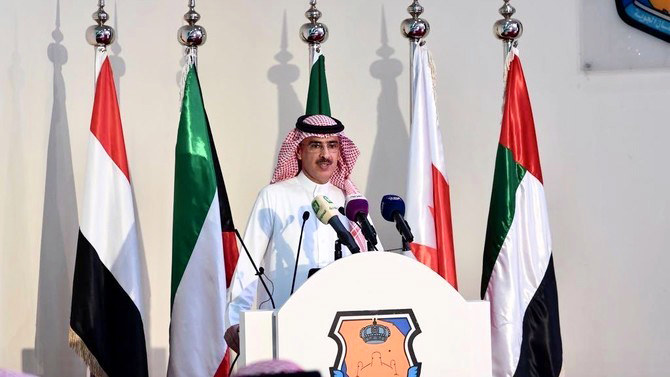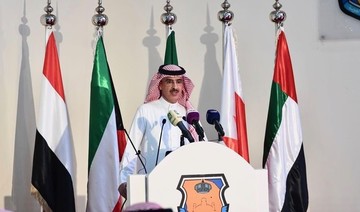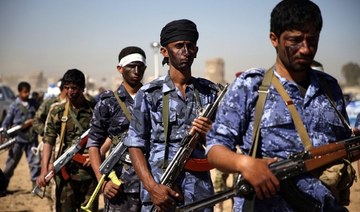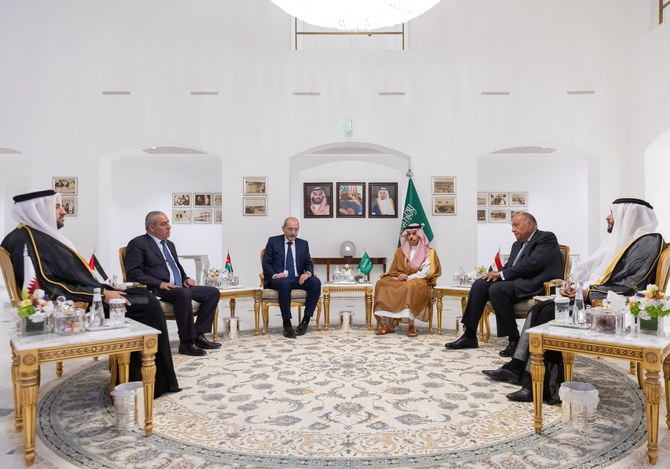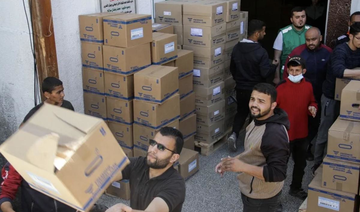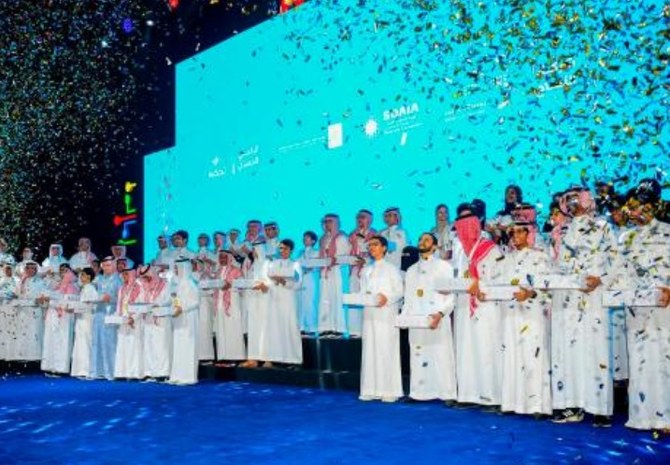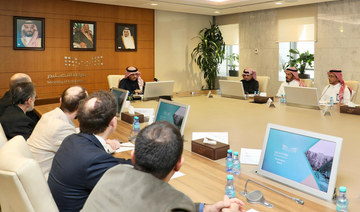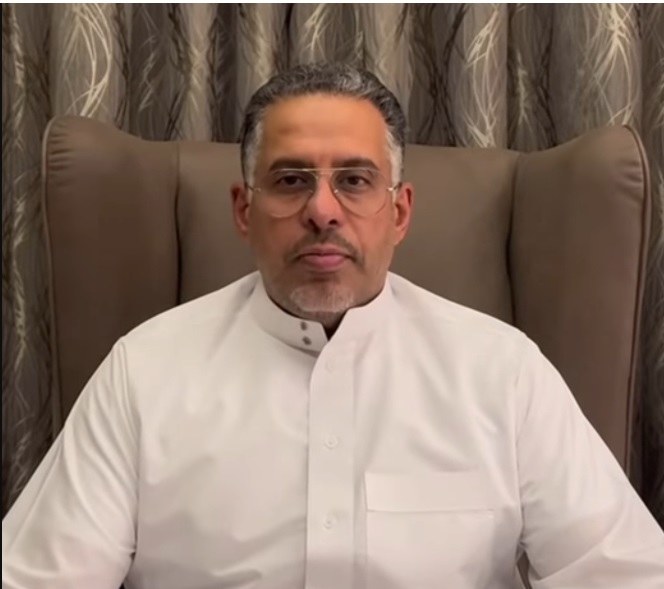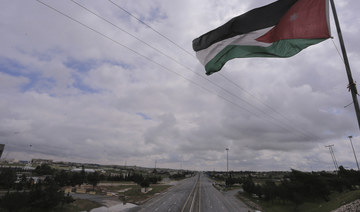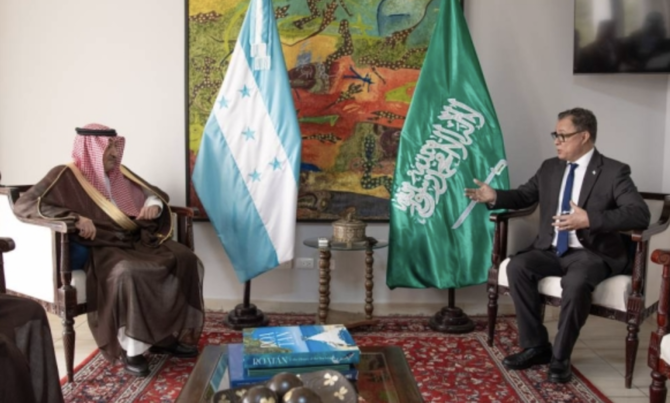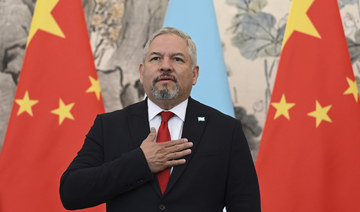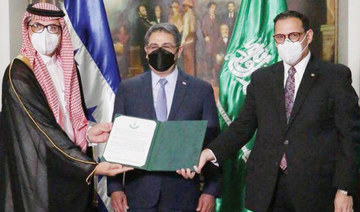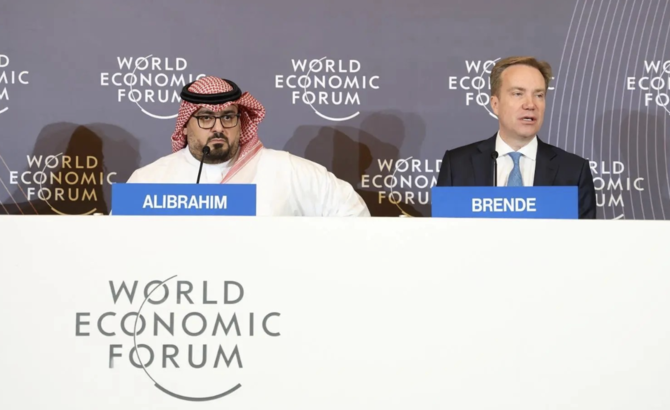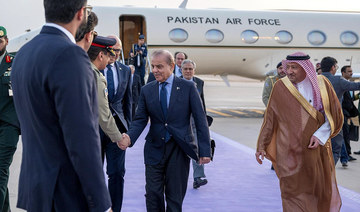RIYADH: The Arab Coalition’s Joint Incident Assessment Team in Yemen has refuted several allegations made by UN agencies, international organizations and media outlets of fatal mistakes made by coalition forces in military operations in the country.
During a press conference at the Armed Forces Officers Club in Riyadh on Tuesday, JIAT spokesman Mansour Al-Mansour reviewed the results of investigations into four incidents.
On Feb. 12, 2018, the UN High Commissioner for Human Rights said that three air strikes hit a Ministry of Interior building in the Thahban neighborhood of Bani Al-Harith directorate in the capital Sana’a on Feb. 4, killing eight civilians, including a woman and a child, and injuring 32. It also stated that UN human-rights monitors who visited the scene reported that there did not appear to be any military targets near the building, which was also attacked in 2016.
During its investigation into the incident, JIAT reviewed all documents, including procedures and rules of engagement, daily mission schedules, post-mission reports, video footage of the mission, satellite images, and the provisions and principles of international humanitarian law.
It concluded that coalition forces received intelligence indicating that Houthi armed militias had seized the General Department of Criminal Evidence and were using it as a weapons depot to support their operations, making it a legitimate military target.
JIAT said that intelligence reports had revealed the establishment of an armed checkpoint by the Iranian-backed Houthi militias on a road near the building to prevent civilians from approaching and entering it. Coalition forces increased surveillance, which confirmed military activity at the site on the morning it was targeted, including the presence of armed vehicles and combatants gathered around them. It also confirmed that there were no civilians around the building.
JIAT found that the procedures taken by coalition forces to deal with a weapons depot in the building, which was a legitimate military target, were correct and in accordance with international humanitarian law, and that coalition forces did not target the building in the 2016 attack.
In the second incident, media sources reported that five civilians were killed on Nov. 07, 2018 when an air strike hit a courtyard beside a residential cottage in the Ram area of Mustaba district in Hajjah governorate, while a family was eating breakfast. When relatives came from two nearby homes to find out what happened, a second air strike, launched about seven minutes after the first, killed two more people and wounded three.
The JIAT investigation found that the closest coalition air mission that day targeted a legitimate military target, a Houthi cannon, in Saada governorate, 44 kilometers from Ram. It also found that coalition forces did not conduct any air missions inside Yemen at the time of the alleged attack on Nov. 7. On Nov. 6, the closest air mission was an attack on a cannon 16 km from Ram, and the closest mission on Nov. 8 was an assault on a tank 19 km from Ram. Both were judged to be legitimate military targets.
JIAT found, therefore, that coalition forces did not target the cottage in Ram as claimed.
In Oct. 2015, Amnesty International issued a report that included the claim that coalition forces bombed a house in Al-Safra, a village southeast of Sa’dah city, on June 13 that year, killing 10 civilians and injuring seven, all from one family. It said representatives of the organization visited the site three weeks after the attack and found no no evidence of military activity in or around the house, or proof that the occupants of the house were combatants. Only one of them was present at the time of the strike, it added.
JIAT said coalition forces received intelligence on June 10 about a building in Wadi Dammaj in Al-Safra district of Saada governorate that belonged to a prominent Houthi militia leader. It suggested the property hosted meetings of Houthi leaders in support the war effort, and that a hangar next to it was used to store military equipment and weapons.
Reconnaissance and surveillance operations by coalition forces, complemented by information from sources on the ground, confirmed that two senior Houthi commanders were at the building. Therefore legal mechanisms protecting civilian properties no longer applied, in accordance with Article 52, paragraph 3 of the First Additional Protocol to the Geneva Conventions.
Coalition forces targeted the site with an air mission on June 13. JIAT found that they took all possible precautions to minimize damage, including the use of two guided bombs, the size of which reflected the size of the targets. One of the Houthi leaders was killed in the strike and the other injured.
The fourth alleged incident was included in a statement by the Special Rapporteur on extrajudicial summary or arbitrary executions. It said that on Dec. 25, 2017 an air strike targeted the house of an Egyptian Memorial guard in Asr, west of Sana’a, killing 11 civilians and injuring four. The house was destroyed and the memorial partially damaged.
JIAT said that intelligence was received indicating the presence of Houthi militia members guarding a meeting of Houthi leaders in a building at the Egyptian Memorial site. The information was confirmed by sources on the ground at the site, which was therefore considered a legitimate military target.
Coalition forces conducted an aerial mission on Dec. 25, according to JIAT, targeting Houthi commanders, armed vehicles and their crews, and other members of Houthi militias gathered at the memorial site. Guided bombs were used and they hit their targets.
After studying the plans for the operation, the intelligence, operational procedures and video footage of the mission, JIAT found that coalition forces took all possible precautions to avoid any losses or accidental damage to civilian property near the target. These precautions included reconnaissance operations and the use of ground sources to ensure there were no civilians within the bombing zone, and the use of proportionate, guided bombs.



